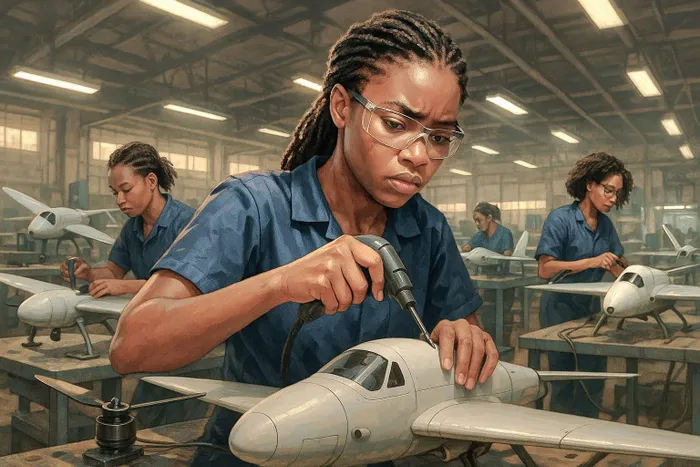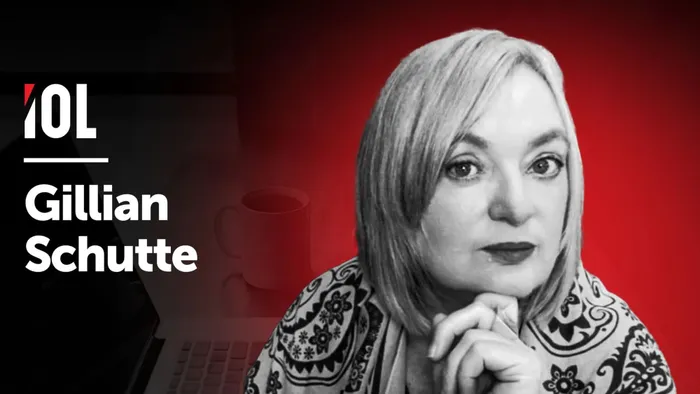South Africa's Manufactured Russia Panic – From Job Recruitment to Global Conflict Narratives

What began as a glossy influencer advert on Instagram and TikTok has been repurposed into a donor-funded trafficking narrative.
Image: Supplied
On August 25, 2025, Newzroom Afrika aired a segment that encapsulates the mechanics of narrative manipulation in the South African media sphere. It began with the claim that a “glossy influencer recruitment drive” offering positions such as au pair, medical assistant, and hospitality worker was “widely believed to be a campaign by the Russian military foreign legion, targeting vulnerable youth from various countries — including South Africa — to participate in the ongoing conflict in Ukraine”.
These recruitment adverts were South African in origin, targeting young people locked out of the labour market. Yet within seconds, the segment shifted the framing from local economic desperation to a security threat narrative. At no stage did the broadcast present verifiable evidence that a South African citizen had been coerced into combat service. The leap from job adverts to military mobilisation was presented as if it were self-evident fact.
Authority Without Accountability
The segment’s authority rested on the appearance of “retired Interpol ambassador” Andy Mashaile. The title suggests deep operational law-enforcement experience, yet in reality it refers to a ceremonial role in Interpol’s 2014 Turn Back Crime public-awareness campaign, carrying no investigative or command authority. Mashaile was given an open platform to claim that 250,000 South Africans had been trafficked in 2023, attributing this figure to the Human Sciences Research Council (HSRC). No such number appears in any HSRC study or dataset.
The most authoritative figure in the public domain comes from the US State Department’s 2023 Trafficking in Persons Report, which cites 509 victims — a number that includes both government- and NGO-identified cases. The gulf between 509 and 250,000 is not a statistical variation; it is a wholesale fabrication. That such a claim was allowed to stand unchallenged reveals both the absence of journalistic rigour and the ease with which television news can lend credence to political talking points when they align with a preferred narrative frame.
What Is Documented — And Why That Matters
The verifiable facts tell a much smaller and less sensational story. According to Business Insider Africa, on August 22, 2025 the South African government opened an investigation into the “Alabuga Start” programme after influencer promotions drew public attention and concern. By mid-2024, only around six South Africans had taken part. Allegations that some participants were channelled into drone assembly at Russia’s Alabuga Special Economic Zone come not from domestic investigation but from the Institute for Science and International Security (ISIS) in Washington, D.C. This distinction is critical: it shows that the scale of South African involvement is minimal, and the most pointed claims about working conditions and labour coercion are filtered through external policy actors whose geopolitical positioning is clear.
Tracing the Narrative Machine
The path this story took into South Africa’s news cycle is neither organic nor mysterious — it follows a clearly traceable sequence that began over two years before Newzroom Afrika’s broadcast. The first detailed allegations about the Alabuga Special Economic Zone and its recruitment practices did not originate in South Africa or with Western think tanks; they began in the Russian-speaking exile press.
On 3 July 2023, Germany-based Protokol published a major investigation alleging that students and foreign recruits — including Africans — were being brought into Alabuga Polytech under deceptive promises and used in drone assembly, often under punitive contracts and tight movement restrictions. Protokol continued publishing follow-up pieces through late 2023 and into 2024.
These Russian-language reports were then picked up and reframed by Western policy actors. By late 2023, the Business & Human Rights Resource Centre — a UK-based NGO funded by bodies such as the Open Society Foundations and European governments — had begun indexing the Alabuga claims in its human-rights database, amplifying them through advocacy networks.
On 13 November 2023, the Washington-based Institute for Science and International Security (ISIS) released its first open-source analysis of Alabuga’s drone production capacity, using satellite imagery.
On 1 July 2024 ISIS published a report named Foreign Youth Exploited for Military Drone Production at the Alabuga Special Economic Zone.
In October 2024, the Associated Press ran a high-profile investigation profiling around 200 African women allegedly working at Alabuga, citing both the exile media reports and new on-the-ground interviews. AP’s coverage was crucial in giving the story mainstream global traction.
On 21 July 2025 Meduza — based in Riga, Latvia, founded by former Lenta.ru journalists after being forced out under Kremlin pressure, and itself designated both a “foreign agent” and later an “undesirable organisation” by the Russian government — began supplementing this coverage with reports on underage workers, workplace injuries, and the broader political climate around Alabuga. The outlet is donor-funded, largely by Western press-freedom and human-rights organisations. Read Meduza’s report on students assembling drones at Alabuga.
On 28 July 2025, ISIS published an update titled Visible Progress at Russia’s Shahed Drone Production Site, integrating details from exile media with its own technical assessments. Through 2024, ISIS continued issuing reports that gave the Alabuga allegations an English-language security-policy framing tailored for U.S. and allied governments.
Only in August 2025 did the story formally enter South Africa’s political discourse. On 22 August 2025, Business Insider Africa reported that the South African government had opened an investigation into “Alabuga Start” after influencer-driven promotions raised concerns. That same day, Bloomberg and Ukraine’s Babel.ua confirmed the investigation in international coverage. Three days later, on 25 August 2025, Newzroom Afrika built a segment around this local hook — but instead of sticking to what had been confirmed, it imported unverified claims from the upstream narrative, bolstered them with an inflated trafficking statistic from its “expert” guest, and reframed the story into one of South African youth being targeted for military recruitment to the Ukrainian front.
By the time it aired, the content had travelled a long way from its origins: Russian exile investigations → Western think tank reports → NGO advocacy databases → global wire services → South African local media. What began as politically positioned Russian-language exposés had been laundered through multiple layers of reframing, translated into English, injected with advocacy language, and repackaged for a South African audience as a locally urgent security story. At no point in this relay chain did a South African newsroom originate, verify, or independently investigate the core allegations.
Soft-Power Compliance, Not Neutrality
Pretoria’s official diplomatic position on the Russia–Ukraine conflict is one of non-alignment. Yet the uncritical uptake of these narratives in domestic media undermines that position. It functions as a form of soft-power compliance, where the state need not issue hostile policy statements because the media space performs the signalling on its behalf. This compliance is not the result of explicit state instruction; it arises from structural dependencies: reliance on donor-funded media, dependence on Western wire services for international coverage, and the absence of well-resourced domestic foreign investigative reporting. South Africa’s public discourse can thus be tilted toward Western-aligned narratives without a single law being passed or official speech being made.
The Drone Double Standard
This compliance is all the more galling when viewed alongside the selective nature of the outrage. Drone assembly is industrial labour within a war economy. It is not benign, particularly if recruitment is deceptive or conditions coercive, but nor is it combat service. South Africa’s own arms industry has produced weapons systems for Western-aligned conflicts — from armoured vehicles to artillery — without triggering comparable moral panic or breathless media investigations. The difference lies not in the work, but in the geopolitical identity of the client. When the end-user is Russia, industrial labour becomes a national scandal; when it is a Western ally, it becomes a point of economic pride. This double standard is propaganda logic in its purest form: moral condemnation is applied selectively to match foreign policy alignments, not ethical consistency.
Questioning South Africa’s Motives
The question that must be asked — and asked loudly — is why South Africa permits its “neutral” foreign policy posture to be contradicted so openly by its own media space. Why are inflated, externally sourced allegations about Russian-linked programmes circulated without verification, while similar or worse practices by Western-aligned actors are ignored? Why is our public sphere being shaped by narratives whose origins lie in exile media and donor-funded advocacy, without transparent disclosure of those roots? This is not merely about Russia or Ukraine; it is about whether South Africa can maintain informational sovereignty in an age where foreign narratives are naturalised in our own media without scrutiny. To call this journalism is generous; to call it sovereignty is dishonest. Until we confront the quiet capture of our public discourse, we remain a nation speaking in the borrowed language of other people’s agendas.
Russian Embassy Statement on 'Alabuga Start' Allegations
The Russian Embassy in South Africa has taken note of the recent public debate surrounding the Alabuga Start programme. This controversy, it said, was “triggered by a Bloomberg article” and fuelled by commentators “quick to accuse Russia of ‘human trafficking’ and ‘exploitation’ based on unfounded allegations.”
The Embassy emphasised that it had no information, apart from reports in certain biased outlets, of any foreign nationals being subjected to forced labour, tricked into performing certain tasks, or otherwise having their rights violated during their participation in the programme.
It further noted that the Embassy itself had only limited details on the initiative and referred interested parties to official sources — namely the Alabuga Special Economic Zone (SEZ) website, where a list of resident companies is available, and the programme’s own website, which features participant testimonials.
The statement dismissed the trafficking claims as unsubstantiated and maintained that the Alabuga Start initiative is presented by its organisers as a legitimate “work-study” opportunity for young people.
The Cost of Weaponising Social Struggles
Human trafficking, women and children’s rights, gender-based violence, and identity politics are urgent social issues that demand rigorous investigation, justice for victims, and systemic reform. Yet when these struggles are weaponised as instruments of geopolitical propaganda, they are stripped of their complexity and reduced to tools for waging information war. This process distorts public understanding, obscures root causes such as poverty, inequality, corruption, and state failure, and ultimately leaves those most affected more vulnerable, not less.
My next piece in this series will reveal how these urgent issues have been strategically deployed as weapons of war via propaganda, reshaping public discourse to serve power rather than people, and masking the deeper structures that perpetuate harm.

Gillian Schutte traces how donor-funded media captured the narrative — turning glossy influencer campaigns promising young South African women jobs in Russia into a human-trafficking scandal.
Image: IOL
* Gillian Schutte is a South African writer, filmmaker, poet, and uncompromising social justice activist. Founder of Media for Justice and co-owner of handHeld Films, she is recognised for hard-hitting documentaries and incisive opinion pieces that dismantle whiteness, neoliberal capitalism, and imperial power. Armed with an MA in Creative Writing and a background in African politics, Schutte fuses personal narrative with critical race theory and decolonial thought to interrogate entrenched systems of domination. Her body of work confronts oppression head-on, amplifies the voices of the marginalised, and advances a radical vision for social, economic, and political transformation.
** The views expressed do not necessarily reflect the views of IOL or Independent Media.